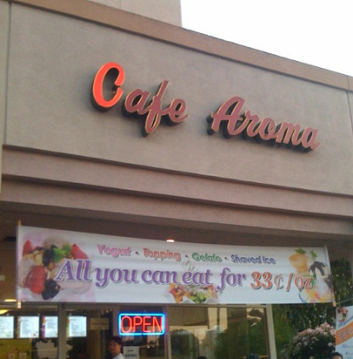An Arizona bill (SB 1062) that’s on its way to the governor’s desk is raising all kinds of controversy.
In the national conversation, the bill is discussed as a contest between gay rights and religious rights, which does seem to be a motivating factor. Proponents of the bill cite Elane Photography v. Willock, a New Mexico case that, last summer, found that the state’s religious freedom laws did not protect the owner’s right to refuse to photograph a gay couples’ commitment ceremony.
That specific case sparked conversations about whether protecting the religious or moral convictions of those in “creative or expressive professions” tramples on their right to freedom of speech.
What seems often to go missing in the heat of Internet outrage is the idea that maybe we ought to look at the documents themselves. And a look at the document itself is illuminating because it reveals that SB 1062 is in fact a revision of current statutes on religious freedom. The law already protects a “persons” rights to
“act or [refuse] to act in a manner substantially motivated by a religious belief, whether or not the exercise is compulsory or central to a larger system of religious belief”

Section 1, lines 8-11 of SB 1062. Screenshot via azleg.gov.
But its innovative touch is, à la Citizens United, is this: under the proposed legislation, protection for “persons” extends beyond “religious assemblies and institutions” to include
“any individual, association, partnership, corporation, church, religious assembly or institution, estate, trust, foundation or other legal entity.”
Section 1, lines 19-21 of SB 1062. Screenshot via azleg.gov.
Leaving aside the issue that this law is really aimed at, let’s think for a moment about what other results this expanded understanding of religious liberty could have. Because I’ve worked as a restaurant server in a number of different states, and because of my abiding interest in faith and food, gluttony — one of the “seven deadly sins” — came immediately to mind.
I grew up in a Baptist church that didn’t condone the use of alcohol. But it was also located in an area where tourism was a key industry, which meant that a lot of young (and not-so-young) people were employed in restaurants. Restaurants that served alcohol.
Different people in my religious circles had different opinions on the subject, but I can remember more than one conversation ending with the acknowledgement that almost anything could be construed to violate certain Christian beliefs.
You could be a librarian and have to check out offensive, anti-Christian books.
You could be a city clerk and have to issue marriage licenses to people who were divorced.
You could be a cashier and have to sell condoms to unmarried people.

“All you can eat for 33 cents/ounce.” Photo courtesy Jencu via Flickr Creative Commons.
But back to gluttony, which is pretty unavoidably condemned in the Bible. Consider these ‘gems’:
- Proverbs 23:2 suggests killing yourself as an alternative to overeating: “put a knife to your throat if you are given to gluttony.”
- Deuteronomy 21:20 offers gluttony and drunkenness as reason enough to take your kid out and stone him to death: “And they shall say to the elders of his city, ‘This our son is stubborn and rebellious; he will not obey our voice; he is a glutton and a drunkard.’”
- Proverbs 23:20 actually seems to suggest that working in a restaurant where people are overeating is unbiblical: “be not among drunkards or among gluttonous eaters of meat.”
So…if gluttony is pretty clearly ‘unbiblical,’ should Christians have the right to refuse to serve people that appear to be gluttonous?
- Should Christian food scientists refuse to create ‘hyperpalatable,’ addictive recipes?
- Should Christian fast-food workers refuse extra-large fries or double cheeseburgers to people who seem to them ‘gluttonous’?
- Should Christian caterers be able to refuse to serve at functions where a certain percentage of attendees give evidence of being gluttonous?
- Should Christian restaurant servers be allowed to refuse to bring the dessert menu for people who appear to have already eaten too much?

“The Sinner Series.” Photo courtesy Bernt Rostad via Flickr Creative Commons.
It is worth considering, too, that because the amendments to Arizona’s law extends protection to individuals and businesses whether or not their beliefs are “compulsory and central” to their religion, there is every reason to think that this bill, if signed into law, would permit atheists, agnostics, and ‘nones’ refuse to photograph Christian weddings or to refuse service people who say a blessing over their food in a restaurant.
I guess there’s probably someone, somewhere, who thinks ‘religious freedom’ ought to extend that far, but I’m willing to bet that few of us would like to live in a society where our actions and choices are threatened to be hampered at every turn by the religious beliefs of the people among whom we live and work.
To me, that doesn’t sound like freedom in any meaningful sense of the word.
*Update*
Governor Jan Brewer (R) has cited the breadth of the bill (see above!) as a factor in her decision to veto:
“Senate Bill 1062 does not address a specific and present concern related to religious liberty in Arizona. I have not heard of one example in Arizona where a business owner’s religious liberty has been violated. The bill is broadly worded and could result in unintended and negative consequences. After weighing all of the arguments, I vetoed Senate Bill 1062 moments ago.”





